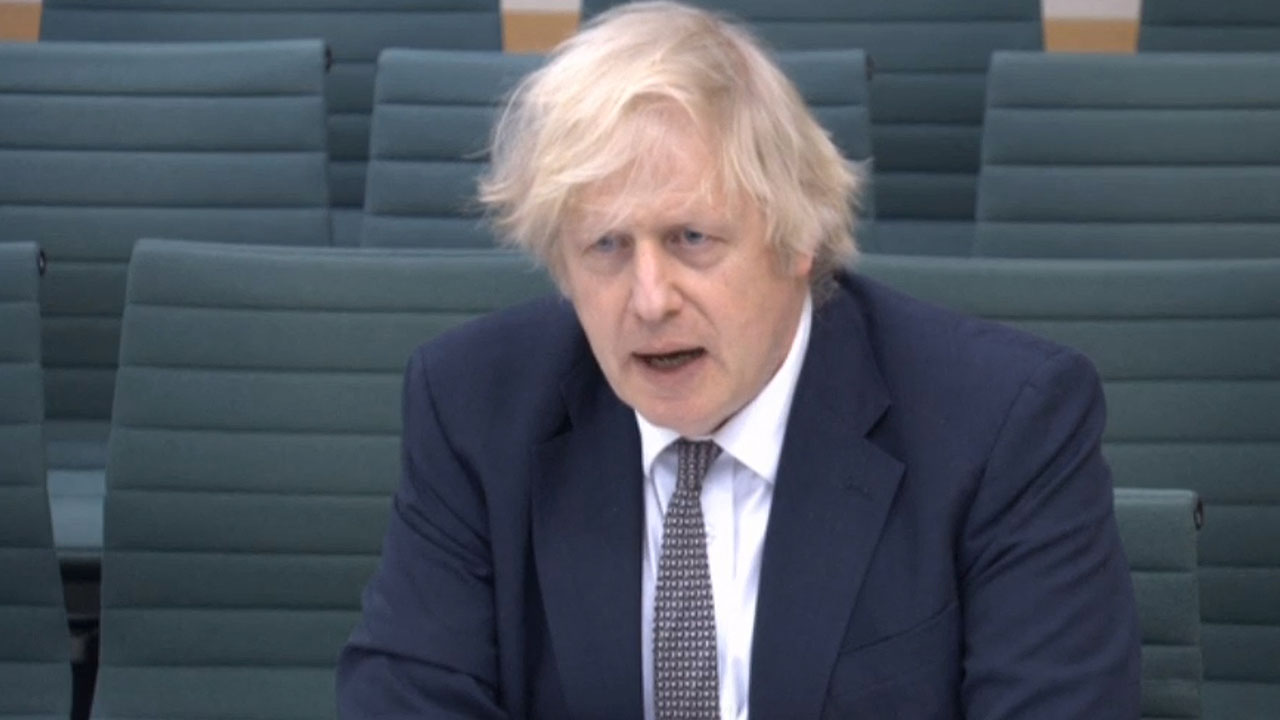
Britain’s prime minister accused China of “gross rights violations” against the Muslim Uyghur minority Friday after Beijing aimed sanctions at UK lawmakers and lobby groups, widening a rift with Western powers over alleged abuses in Xinjiang.
At least one million Uyghurs and people from other mostly Muslim groups have been held in camps in northwestern Xinjiang, according to rights groups, who accuse authorities of forcibly sterilising women and imposing forced labour.
The European Union, Britain, Canada and United States sanctioned several members of Xinjiang’s political and economic hierarchy this week in co-ordinated action over allegations of widespread abuse in the region, which the US has said amounts to genocide.
Beijing, which insists Xinjiang is an “internal affair”, has gone into attack mode, imposing sanctions on individuals from the EU and Britain who have taken up the Uyghur cause.
It has also fuelled a social media PR war against several Western brands operating inside China, which has seen calls for boycotts, and celebrities dropping endorsements.
On Friday, China announced sanctions against nine British individuals and four entities, saying they had “maliciously spread lies and disinformation” over Beijing’s treatment of Uyghurs.
Those sanctioned include Iain Duncan Smith, former leader of Britain’s Conservative party, as well as Parliament’s chairman of the foreign affairs committee Tom Tugendhat, both outspoken critics of China’s policy towards dissent in Xinjiang and Hong Kong.
The UK accused China of trying to muzzle criticism of its rights record.
“The MPs and other British citizens sanctioned by China today are performing a vital role shining a light on the gross human rights violations being perpetrated against Uyghur Muslims,” Prime Minister Boris Johnson tweeted.
“Freedom to speak out in opposition to abuse is fundamental and I stand firmly with them.”
Beijing also aimed sanctions at four groups that have been vocal in driving rights in Xinjiang and Hong Kong onto Westminster’s agenda.
Those included the China Research Group, Uyghur Tribunal and Essex Court Chambers whose barristers built a legal opinion that there is a case for “genocide” against the Chinese government over the treatment of the minority.
All of the sanctioned parties will be barred from mainland China, Hong Kong and Macau, while any assets in the country will be frozen, and Chinese citizens and institutions will be banned from dealings with them.
‘Profoundly sinister’
The China Research Group — led by sanctioned MPs Tugendhat and Neil O’Brien — accused Beijing of a “profoundly sinister” approach to its critics.
“Yet more Western businesses are discovering that China is becoming a dangerous place to do business,” a statement said, citing “an increasingly nationalistic and unpredictable Communist party.”
China flatly denies any abuses in Xinjiang, describing detention centres as work camps intended to uplift incomes and diffuse extremism in a region made restive by central control.
Beijing accused Western countries of “provoking first” with their sanctions and signalled a rough ride ahead while rights criticism dominates diplomacy.
“We can only talk and deal with them in a way they understand and will remember,” foreign ministry spokeswoman Hua Chunying told reporters in Beijing.
“I think they will get used to it gradually.”
The reputations of several Western brands have been incinerated this week after old statements expressing concerns over the reports of forced labour in cotton-rich Xinjiang resurfaced on China’s closely controlled social media.
Celebrities and tech firms waded in, pulling partnerships with brands from Nike and H&M to Adidas, Burberry and Calvin Klein, as the diplomatic rift claimed casualties among global firms doing business in China.
Nationalist tabloid Global Times said H&M, which counts China as its fourth-largest market, had been “suicidal” in its remarks.
As the fashion retailer evaporated from Chinese shopping apps, H&M China said Wednesday night it “does not represent any political position” and remained committed to long-term investment in China.
A week of vituperations from Beijing brought into question a massive trade pact with the European Union which is in the final stages before the agreement.
France on Thursday warned it would take a firm stance on forced labour in the pact, which must be ratified by the bloc’s 27 states and approved by its parliament.
The Western move to box in China over Xinjiang has been orchestrated by US President Joe Biden, who has sought consensus against the perceived aggressions of Beijing.
In his first presidential press conference late Thursday, Biden said he was not “seeking confrontation”.
But relations between the world’s two leading economies and military powers have soured further since Biden entered office.
A debut face-to-face meeting between the two nations’ top diplomats last week in Alaska quickly descended into mud-slinging.



